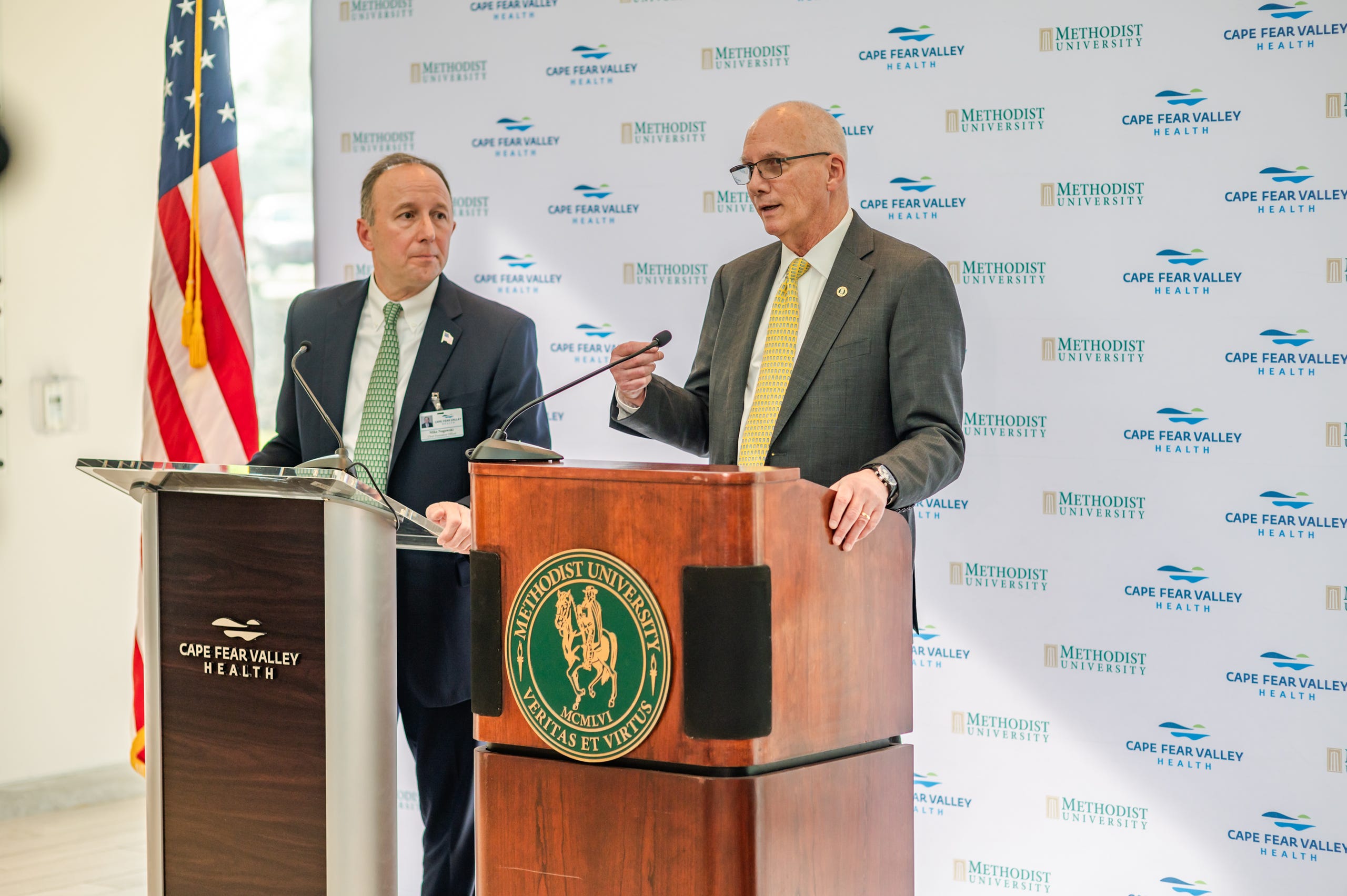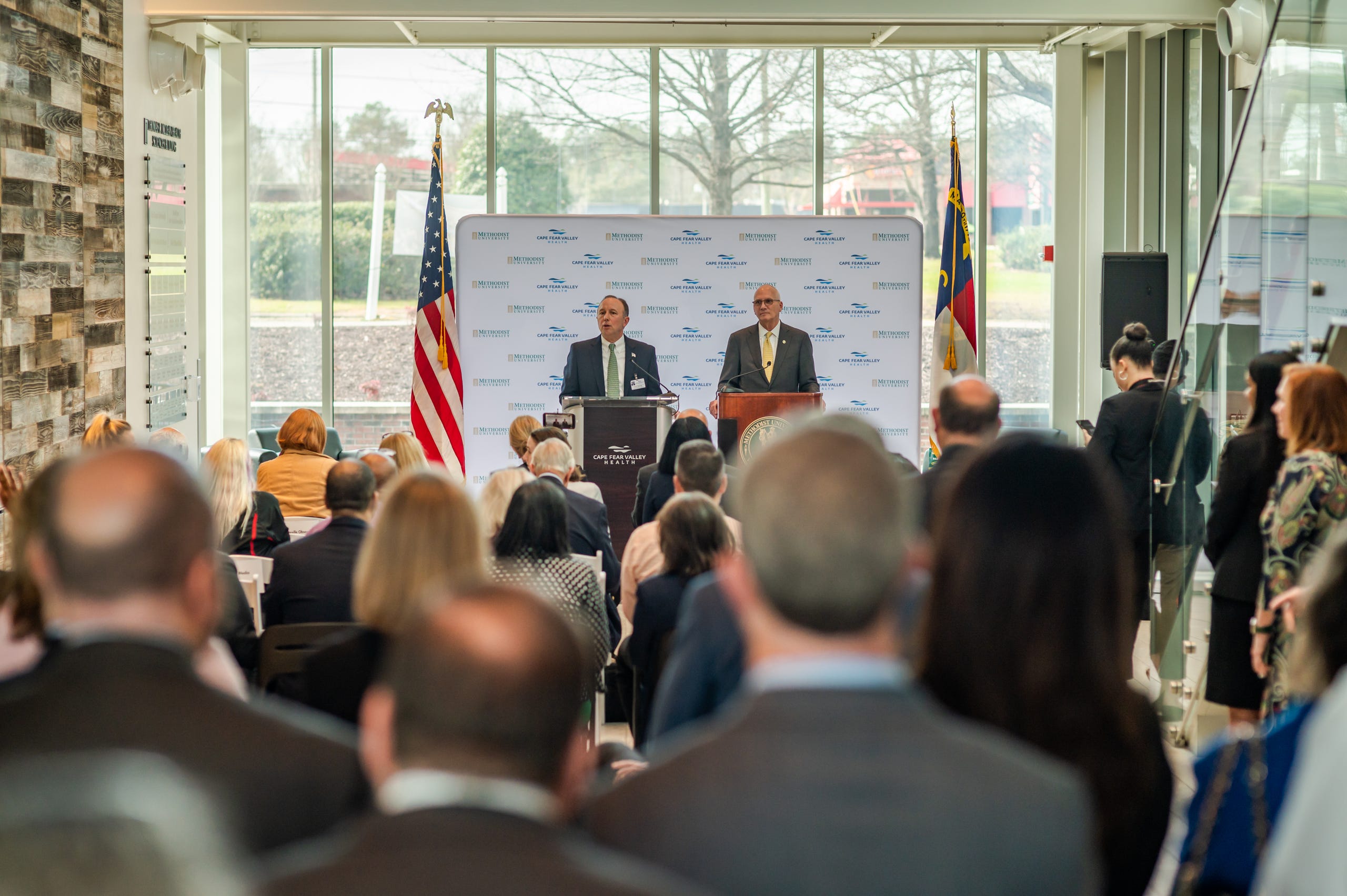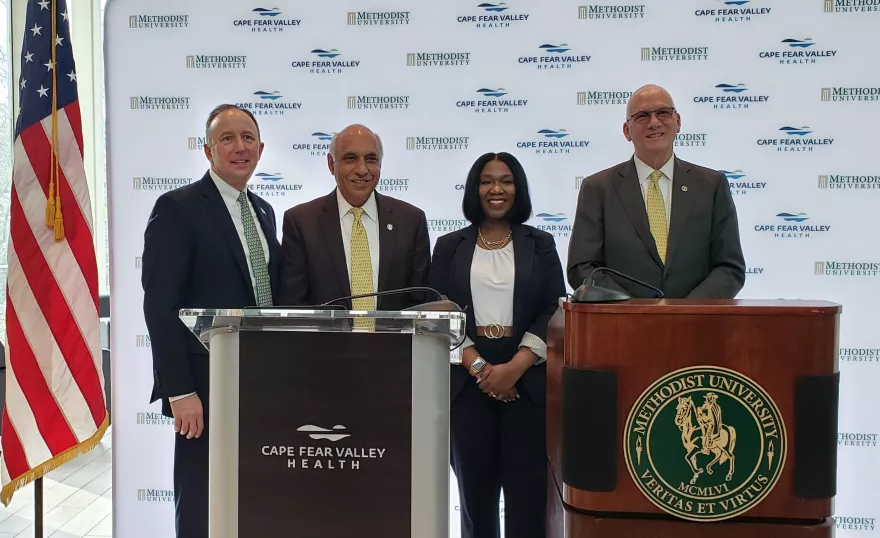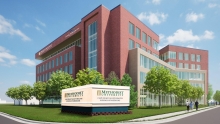Medical Education
Methodist University and Cape Fear Valley Health announced Monday that they have partnered to create a "full-fledged" four-year medical school at Methodist University.
The campus will be located in a new facility at Cape Fear Valley Medical Center, where classes are set to begin in July 2026.
The partnership will have a mission that focuses on providing better medical care for rural and underserved populations and diversifying the physician workforce, according to a statement from the university.
"We are really perfectly located to meet this need together. I’m really excited that we have the opportunity to do so," Methodist University President Stanley T. Wearden said during a news conference Monday at the McLean Health Sciences Building on the Methodist University campus in Fayetteville. "A medical school will be a tremendous benefit to Fayetteville, Cumberland County and the region."
Wearden said the school will attract not only new healthcare professionals and new areas of medical specialization but will be a boon to the health and economy of the people in the area.
"It will improve the quality of health for people in this region and will attract new businesses, all ancillary businesses, to health sciences and medical health," he said. "It will bring in new taxpayers, new homebuyers, new individuals to buy the goods and services in this region. It will elevate the economic well-being of this region."
He said an economic impact study that Cape Fear Valley Healthcare Systems commissioned found that in the first 10 years, a new medical school will add $750 million to the regional economy.

"Cape Fear will build the school on its campus; Methodist University will lease that space from Cape Fear and we will continue to work together on an ongoing basis to support this enterprise. The medical school will belong to Methodist University and Methodist University will grant the degrees, but we could not do this without the clinical rotations and financial support of Cape Fear Valley Health System."
Mike Nagowski, CEO of Cape Fear Valley Health System, said "population health" is the number one benefit of the medical school.
"The data is very clear: Wherever there are academic medical centers partnering with universities to produce physicians and clinicians, the overall health of the population continues to improve," he said.
Nagowski said the school will go a long way to solving the issue of doctor deserts.
"There’s a reason there’s so many emergency room visits here and that’s because of the doctor shortage," he said. He noted that 70% of physicians stay in the community in which they got their degrees.
Wearden said an application for accreditation has already been submitted to the Liaison Committee on Medical Education — the nationally recognized accrediting authority for medical education programs leading to the M.D. degree in the U.S. and Canada.
Once the application is received, Wearden said, it triggers an 18-month time clock for the application to be completed. Wearden said the school will start with 80 students per year and grow to 120 students per year.
He said the position of dean of the medical school has yet to be filled, Wearden said, but they have "one strong candidate" in mind who they hope to bring before the faculty sometime in late March.
"This will truly put us on the map," said Dr. Rakesh Gupta, chair of the Methodist University Board of Trustees. Wearden noted that Gupta was a former chairman on the board of Cape Fear Valley Health Systems. "I'm incredibly grateful to the board for their support, and look forward to the day the first class of med students will walk into the building and wear a white coat that will bear the name of two organizations: MU and Cape Fear Valley Health."
After the press conference, Alicia Marks Flowers, board chairperson for Cape Fear Valley, said she is a lifelong resident of Cumberland County who grew up less than a mile from the university. She was born at Cape Fear Valley Medical Center and said it was heartening “to see these two entities collaborate on something that is going to be so transformative for this community.”
She said: “I believe it’s going to have not only an economic impact but a tremendous impact on the health outcomes of the residents in Fayetteville, Cumberland County and the southeast region as a whole.”





